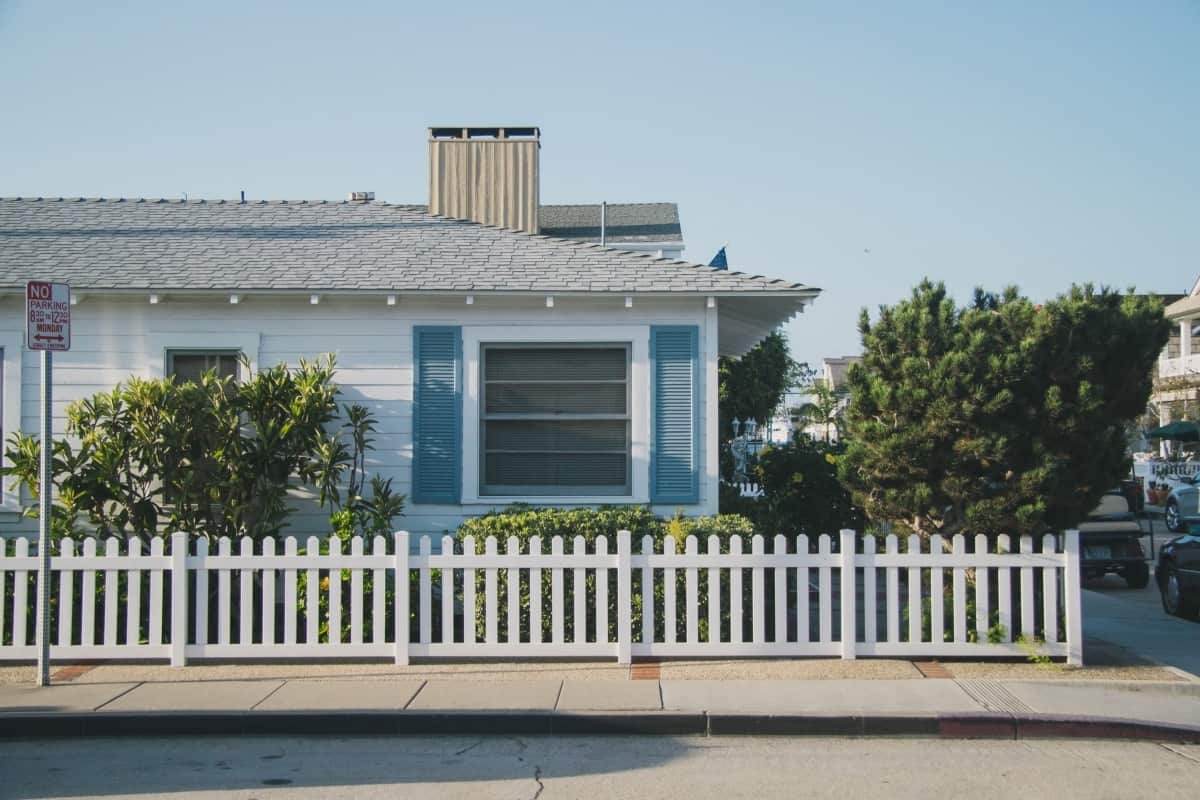Climate change’s negative consequences have led to an unprecedented interest in solar energy over the past decade. More people are continuing to realize the value of converting solar power since it is an environmentally sound and clean energy source. Apart from that, switching to solar power can help to save money as a homeowner. In particular, using solar power minimizes the amount of carbon and other pollutants in the environment. In other words, reducing carbon means that we will have cleaner water and air. Also, by installing solar panels, you will effectively be free from high electricity bills. Therefore, solar power will reduce your financial strain and help to have a sense of pride in the renewable energy source.
Discover Energy Audits with Solar Energy and ONIT Home
Try our Free Energy Audit to make sure your home is performing at optimum energy efficiency. We’ll inspect every nook and cranny of your home to make sure it’s best serving your needs. We’ll also give you tips on lowering your energy bills, conserving energy, and creating a more efficient space. To learn more about how we can help you maintain a top performing home, visit us online to get started!
If you wish to switch to solar power, below are the critical issues that you should know.
Considerations Before You Switch to Solar
Is Your Roof Suitable?
One of the best components regarding solar panels involves their durability. A significant number of panels have a warranty of 20-25 years. Therefore, for the best quality solar production, you’ll need to repair your roof if it’s in poor condition before installing a solar panel.
You should know that it can be costly and challenging to reinstall solar panels. However, if a professional determines that your roof is unsuitable for solar installation or you are not a homeowner, you can still benefit from solar power. In particular, you can opt for community solar, which enables several people to benefit from shared solar energy installed on-site or off-site. The associated installation costs will be divided among the participants.
Duration You Will Stay Within the Property
Solar power is a long-term investment and has lasting benefits. If you plan to move from your current workplace or residence in a few years, you may ask what’s the point in financing such an investment if you’re going to move?
On the flip side, going solar adds value to your home and can make your property more profitable when it’s time for you to sell. On average, solar panels increase a property’s value by 4.1%.
Is Your Home Suitable for Solar Installation?
Some homes might not be able to generate an adequate level of solar energy depending on different factors. While some solar companies, like ONIT Home, will conduct an audit of your property to find ways to make your home more energy-efficient, The following indicators can help to determine whether your home is ready for a solar installation.
- Number of Trees. If several trees surround your home, it will mean that you will have access to the shade that can hinder the panels from effectively harnessing solar energy.
- Roof Direction. If you wish the solar panels to receive maximum sunlight, you should place them on a south-facing roof. You should install the solar panels on the north-facing ceiling if you live in the south. If you like to generate more energy in the morning hours, the east-facing direction can be the best option, while the west direction can be appropriate when you do not use a lot of energy in midday hours.
- What Type of Roof Do You Have? The design of our home is often an extension of our own taste pallet. Therefore, the type of roof homeowners have can vary. For example, maybe you have a flat roof on your home and worry solar panels won’t work. This isn’t the case. Sunlight can still reach your panels. However, roof pitch angles of 30-45 degrees are great in most situations.
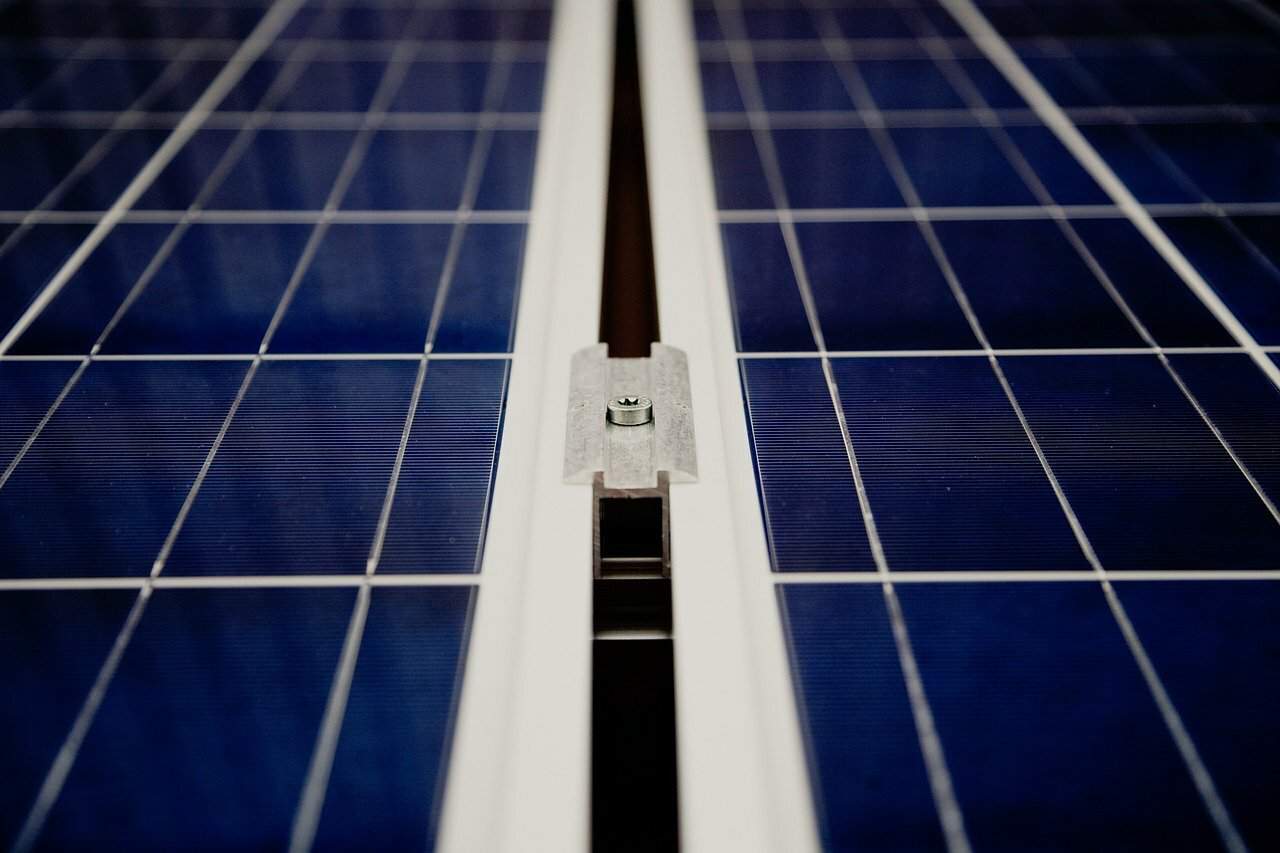
What Kind of Solar Models Should You Buy?
Currently, there are two dominant solar technologies that you can consider:
- Thermal. This type of solar system uses thermal technology to convert sunlight into heat for energy. The energy process uses mirrors to transport the heat from sunlight to a collector. The collector is where liquid converts to steam to circulate a turbine. These systems are great for commercial settings because they’re too powerful for a residential property.
- Photovoltaic. The technology uses inverters and other equipment to convert sunlight into electric power. If you have a photovoltaic system, your panels will only be producing energy during daylight.
And then there are the different types of solar panels to consider. The two most popular options are monocrystalline and polycrystalline.
- Polycrystalline. These are the less efficient but more affordable options. The panels have a blue hue and the electrons have less freedom to move around which contributes to the lack of efficiency.
- Monocrystalline. A monocrystalline solar panel is more expensive due to its powerful efficiency and attractive design. These panels have a black color and allow the electrons to move freely.
To find the perfect solar power system for your home, we recommend consulting with a trained team of technicians that can guide you in the right direction.
Consider the Impacts of Different Weather Conditions On Solar Panels
Most solar panels are designed to handle various climates and weather conditions. This includes extreme heat and cold, wind, hail, and heavy rain. Therefore, even if you live in an area affected by snow, rain, and storm, you can still install a solar panel. During the manufacturing process, every solar panel is tested for extreme weather conditions to earn the IEC 61215 certification. This certification ensures the panel can withstand various climate conditions.
Although the certificate is an appropriate baseline, it does not imply that all solar panels can withstand the small quality and durability. In summation, weather conditions should not bother you because top-rated solar panels are designed to withstand strong winds of up to 140 MPH. Provided the panels are not covered in snow, the winter climates can be the best for solar power generation.
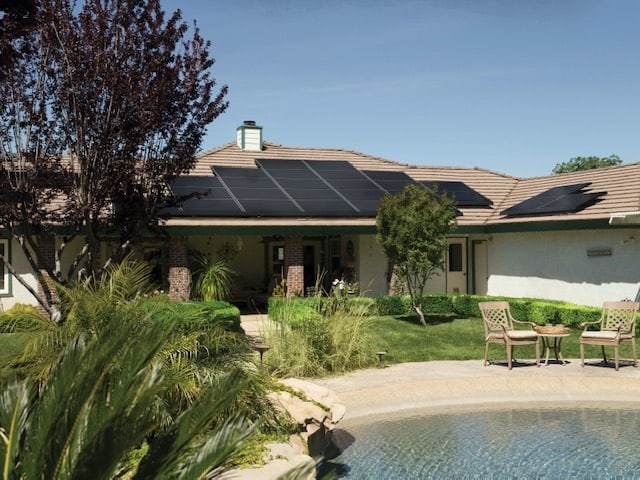
Should You Lease Solar Panels or Get A Loan?
When it’s time to finance your solar panels, you have a few options. Generally, if you manage to buy a solar system, you can install it at a lower cost than getting one through a power purchase agreement (PPA), lease, or solar loan.
What To Know About Solar Loans
If you wish to buy a solar system when you switch to solar, getting a loan can reduce its up-front costs. Most solar loans have similarities to home loans because some institutions will provide subsidized solar loans below the market rates. If you wish to own a new home, you can include solar as part of your mortgage through Federal Housing Administration loans.
Check out our full guide on understanding all there is to know about solar loans.
Understanding a Solar Lease
If you want to switch to solar, a solar lease is a financing option. Leasing you solar power system allows you to host a solar system owned by a solar firm and buy back the electricity generated. In this case, you will enter into an agreement that will enable you to have lower bills without incurring monthly loan payments. On the contrary, the PPA will enable, but the power generated by a set price. However, you will not be eligible for a tax credit with the PPA and solar leases because you don’t own a solar system.
Don’t Forget About Solar Rebates
Additionally, buying a solar system can make you eligible for a Federal Investment Tax Credit (ITC). Congress passed an extension of the ITC that offers a 26% tax credit for solar systems installed up until 2022. In 2023, the tax credit lowers to 22%.
Should You Seek Permission From the Homeowners Association (HOA) Before Installing a Solar System?
Does your neighborhood have an HOA program in place? If so, this can lead to some complications when you decide to switch to solar. It most certainly doesn’t mean you can’t install solar panels on your roof, it just means you’ll have to make sure you have protection from your HOA intervening.
Some states have solar rights laws to prevent private property owner’s associations, much like the HOA, from interfering with your solar panel installation. For example, the Texas House Bill-362 limits property owners and HOAs from restricting the outright use of solar devices.
If you live in an area with HOAs, you should follow the standard procedures for seeking home improvements. The HOA maintains authority in specific instances. For instance, the following exceptions offer power to HOAs to restrict the installation of solar panels under the following conditions:
- If you installed them without approval from HOA
- When installed in a way that affects warranties
- If the panel extends above the roofline, is not parallel to the roofline, or does not conform to the roof slope
- When the solar panel is ground-mounted and extends above the ground
- If the panel is located in a common property in a subdivision
- If the solar device violates public safety and health, or it is illegal
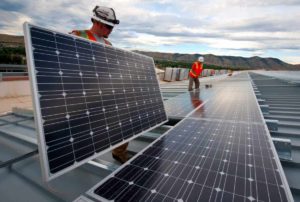
How Can You Find the Right Professional Solar Installer?
When researching for a solar panel installer, you should ensure that you get insured and qualified professionals with proper certification. The North American Board of Certified Energy Practitioners typically provides the standard accreditation for the solar industry. To get the best install installer, you can ask family members or friends who opted to switch to solar recently so that they can offer you references. You can also check online for reviews for the recommended professionals. After that, you can interview the installers as you consider the following elements:
Is the Installer Familiar With Local Interconnection and Permitting Processes?
Obtaining building permits and getting permission to install a solar system can be a tedious and long process. Therefore, you should ensure the solar installer knows the local processes to connect and install the system promptly.
Can the Professional Offer References?
You can try to talk with other customers in your area to learn more regarding any issues they faced while installing solar panels and how the installers assisted in resolving them. You can likely find reviews online that outline a previous customer who have made the decision to switch to solar.
Is the Professional Certified or Licensed?
Solar panels are supposed to be installed by a licensed installer. That means that the subcontractor or installer should have a license to work as an electrical contractor. You can ask the electrical board of state if the contractor has a valid license. The local building department might also need the solar installer to have a general license for contractors. You can call the county or city where you live for additional details on licensing. Or you can keep things simple and trust your solar installation with the licensed professionals from ONIT Home.
Does the Installer Offer Warranty?
Most solar equipment has an industry-standard warranty, approximately ten years for inverters and 20 years for solar panels. Ensuring the system has a strong warranty will indicate the installer is using high-quality equipment. At the same time, you should establish who will be responsible for repairing and maintaining the system. When the installer offers you a warranty, you need to determine if they have a verifiable history of handling offerings sticking to their promises.
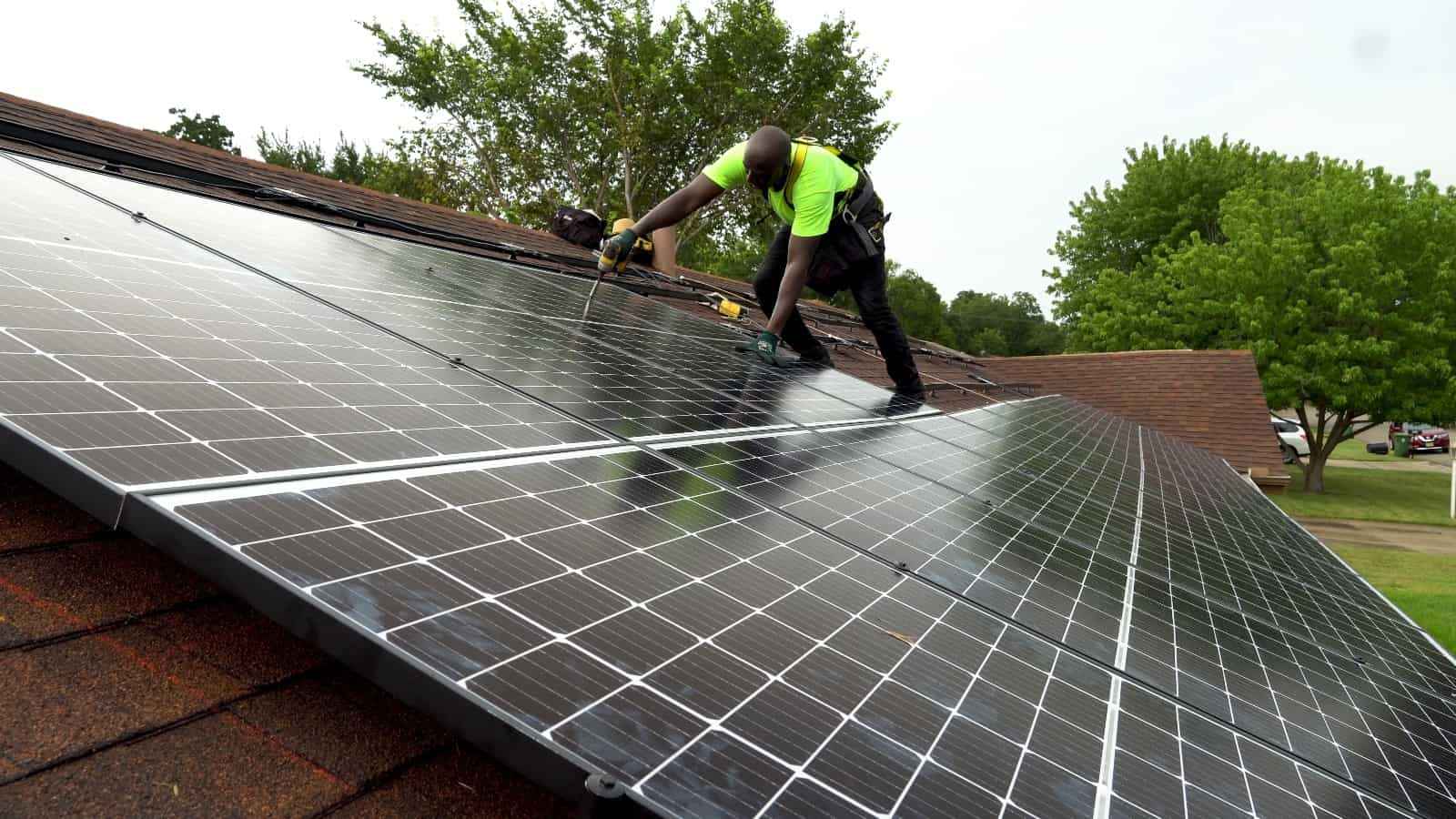
Get the Right Solar Power System for Your Home With ONIT Home
There’s never been a better time to make the switch to solar.
In all honesty, a solar power system is beneficial for every homeowner. You get the best of both worlds, an increase in property value and a decrease in monthly energy bills. And when you go solar with ONIT Home, you can enjoy a two-week installation period and a 30-year warranty. Financing your system is simple and affordable with our smart choice financing options. Plus, our solar customers get a FREE water filtration and security system. Give us a call at 1-833-433-0331 for more advice on going solar or to get started with planning your installation.



